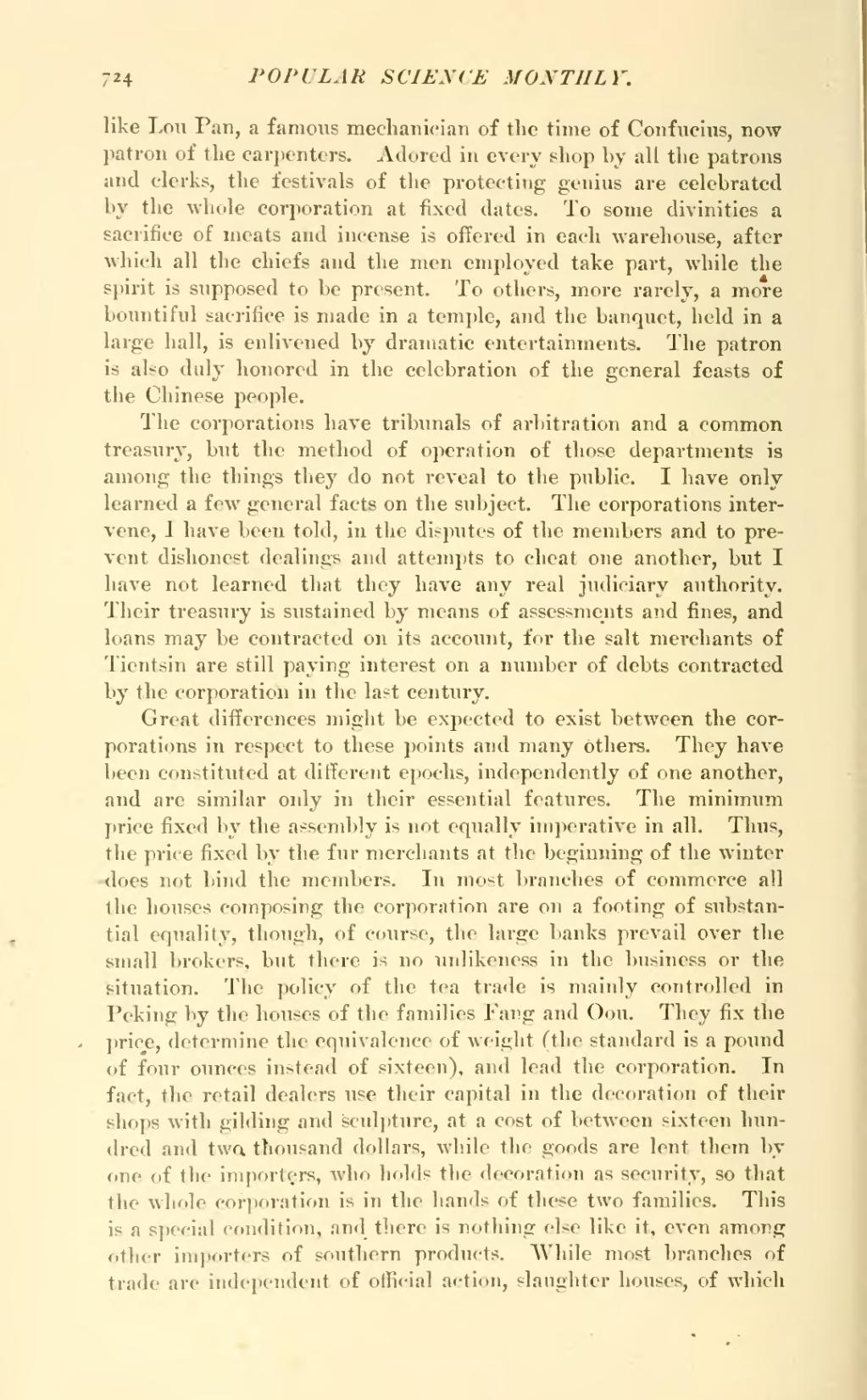like Lou Pan, a famous mechanician of the time of Confucius, now patron of the carpentcrs. Adored in every shop by all the patrons and clerks, the festivals of the protecting genius are celebrated by the whole corporation at fixed dates. To some divinities a sacrifice of meats and incense is offered in each warehouse, after which all the chiefs and the men employed take part, while the spirit is supposed to be present. To others, more rarely, a more bountiful sacrifice is made in a temple, and the banquet, held in a large hall, is enlivened by dramatic entertainments. The patron is also duly honored in the celebration of the general feasts of the Chinese people.
The corporations have tribunals of arbitration and a common treasury, but the method of operation of those departments is among the things they do not reveal to the public. I have only learned a few general facts on the subject. The corporations intervene, I have been told, in the disputes of the members and to prevent dishonest dealings and attempts to cheat one another, but I have not learned that they have any real judiciary authority. Their treasury is sustained by means of assessments and fines, and loans may be contracted on its account, for the salt merchants of Tientsin are still paying interest on a number of debts contracted by the corporation in the last century.
Great differences might be expected to exist between the corporations in respect to these points and many others. They have been constituted at different epochs, independently of one another, and are similar only in their essential features. The minimum price fixed by the assembly is not equally imperative in all. Thus, the price fixed by the fur merchants at the beginning of the winter does not bind the members. In most branches of commerce all the houses composing the corporation are on a footing of substantial equality, though, of course, the large banks prevail over the small brokers, but there is no unlikeness in the business or the situation. The policy of the tea trade is mainly controlled in Peking by the houses of the families Fang and Oou. They fix the price, determine the equivalence of weight (the standard is a pound of four ounces instead of sixteen), and lead the corporation. In fact, the retail dealers use their capital in the decoration of their shops with gilding and sculpture, at a cost of between sixteen hundred and two thousand dollars, while the goods are lent them by one of the importers, who holds the decoration as security, so that the whole corporation is in the hands of these two families. This is a special condition, and there is nothing else like it, even among other importers of southern products. While most branches of trade are independent of official action, slaughter houses, of which
